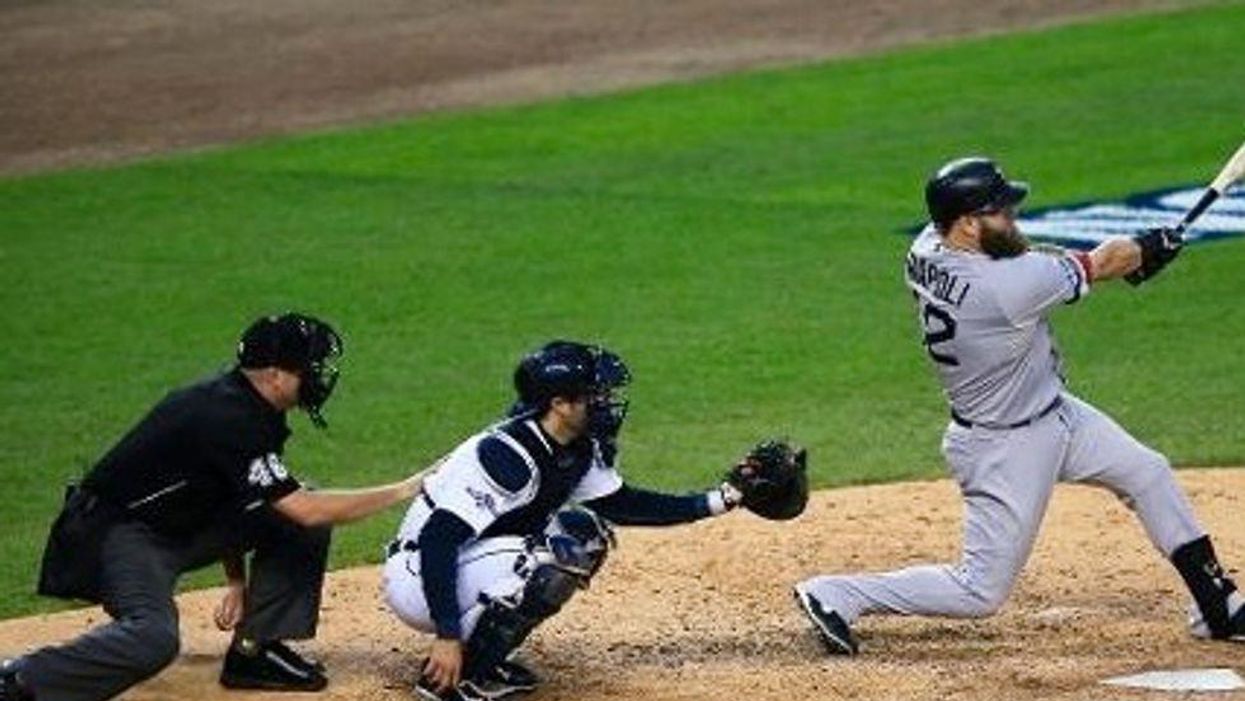No, Baseball Isn't 'Doomed' Or Even Broken -- It's Still Beautiful
Now that the Major League Baseball season is well under way, with fans like me relieved and happy to have our absorbing summer pastime back, spectators returning to the ballpark, and interesting playoff races in all six divisions, it's time for the annual spate of "baseball is doomed" articles presaging the game's inevitable decline and fall.
"Baseball Is Broken" reads a prototypical headline in The Atlantic, of all places, not normally known for sports writing. "Once a generation," according to author Devin Brooks" the game of baseball suffers through a fun crisis, and the story of this MLB season so far is how alarmingly not fun baseball has become."
The big complaint is that pitchers—bigger, stronger, and throwing harder than ever—have gotten the upper hand over batters, leading to an MLB-wide decline in batting averages and a whole lot of strikeouts. Also a decline in situational hitting, i.e. hit-and-run plays, hitting behind base runners to move them along, bunting, and so on.
Many fans have been complaining, particularly in New York, where the Yankees have been whiffing at prodigious rates. I can't say I was personally disappointed to see eight of the last nine Yankees batters fan during a taut contest against the Red Sox last week. Boston pitchers threw some unhittable stuff. When it's 97 mph on the black edge of the plate at the knees…
Well, you try to hit it.
As a one-time pitcher during the Late Middle Ages—we played with rounded stones and cudgels—I found it thrilling. The Red Sox won zero games at Yankee Stadium during last year's Covid-shortened season.
Besides, the two teams will square off another 18 times during the regular season. Part of the beauty of the game for serious fans is that they do it almost every day. You know how your grandma used to watch her daily TV soap opera? For me, that's MLB baseball: an entertainment, an ongoing saga, and a refuge from…
Well, what have you got? For me it's mainly politics, a couple or three blessed hours without a word about Democrats, Republicans, or even the happy peregrinations of "The Second Gentleman."
It's definitely a TV show. Due to a combination of circumstances, I watched four consecutive Red Sox broadcasts last week with four different announcing crews: Houston's, Boston's, Fox Sports' and ESPN's.
Regardless of which team you support, it makes a big difference. The Astros need a serious energy transfusion in the broadcast booth. For all his star power, ESPN's Alex Rodriguez was droning on like a priest saying a 6 a.m. mass until he hit upon the topic of the 2021 Yankee team's deficiencies. That earned him a well-deserved headline in the New York Times.
Good pitching really plays on TV, especially with an expert commentator (and unabashed flake) like Hall of Fame pitcher Dennis Eckersley calling them. "If he throws this guy another piece of high cheese," Eck will say, "he'll miss it by a foot." And most often, that's exactly what happens.
But back to The Atlantic and baseball's "fun crisis." What apparently set author Devin Brooks off was a seeming misunderstanding. His piece appears with the following correction: "This article previously misstated that Tyler Duffey beaned Yermin Mercedes. In fact, he threw behind Mercedes."
That is, instead of assault with a deadly weapon, the Minnesota Twins pitcher made a symbolic gesture to convey the message: "We didn't like you showing us up yesterday. You need to show more respect."
Duffey was suspended for three days, and his manager for one.
What precipitated the whole kerfluffle was slugger Mercedes ignoring a take sign from his manager, the venerable Tony La Russa, and hitting a 3-0 meatball from a position player, catcher Willians "La Tortuga" Astudillo, 420 feet for a home run in the ninth inning of a 15-4 game.
See, by bringing in a position player, Minnesota was conceding the game, and by hitting what amounted to a batting practice home run, Mercedes was rubbing it in. Baseball's unwritten rules can be subtle. Had the count been 3-1, it would presumably have been OK.
La Russa said his player had a lot to learn, several of his White Sox players said their manager himself was out of line, and then the Twins "retaliated." In short, as Brooks comments, "pretty standard big-league macho posturing."
Even if La Russa himself had made the ultimate rookie mistake of playing the "Do you know who I am?" card during a DWI bust last October and flashing his World Series ring. (He eventually pled guilty.)
The only serious baseball issue here is Mercedes ignoring a sign and White Sox players basically saying nobody needs to pay attention to grandpa. If so, then the 76 year-old Hall of Famer (and baseball's second-winningest manager ever) may have lost control of his team. And that wouldn't be funny at all.


